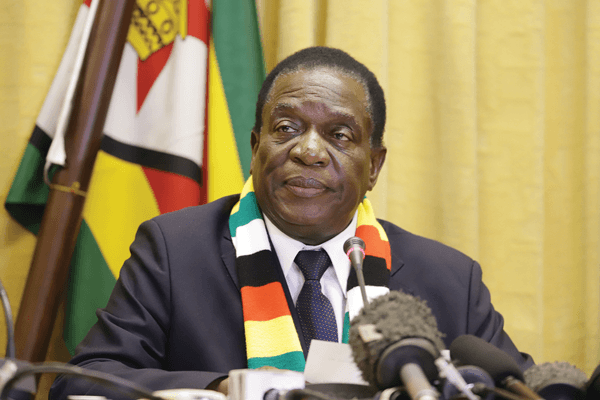
EDITORAL COMMENT
ANY hopes of media freedom that many people nursed when President Emmerson Mnangagwa ushered in his “Second Republic” have been dashed after the Zimbabwe Media Commission (ZMC) Bill retained autocratic provisions designed to suppress and criminalise freedom of expression, itself a hallmark of any civilisation.
Stakeholders who appreciated the extent to which President Robert Mugabe went to stifle freedom of expression were anticipating a new media dispensation, but have had the rug pulled from under their feet. It is, indeed, sad if not ironic, that government has decided to retain such draconian provisions.
Given the purported anti-graft campaign spearheaded by Mnangagwa’s government, one would have hoped that media would be given the space and ammunition to conduct investigations and publish their findings without fear or favour. But it has turned out that these hopes were misplaced and nothing like that is ever going to happen. This effectively provides fodder for those who argue that government will always deal with corruption with kid gloves, or persecute small fish only, because many senior government officials are stained.
It is, indeed regrettable, as we have learnt, that the Bill ignored much of the input and key recommendations given by civic society organisations and media freedom activists, including the decriminalisation of the media profession, the recognition of media self-regulation as part of a co-regulation model for Zimbabwean media and removal of political interference in the commission’s modus operandi.
This simply demonstrates lack of commitment by government to create a conducive environment in which the media can freely operate without fear. But the major setback is there is no buy-in into the new law from critical stakeholders, thus the suspicions and fights between government and the media — especially the privately-owned media — will likely continue. It would have been more progressive for the government to work together with the all sectors of the media.
Quite clearly, the government is unrepentant as the new Bill, if studied closely, appears to be an instrument that government wants to use to reintroduce, albeit through the back door, the criminal defamation offence that was struck off the statutes by the Constitutional Court three years ago.
The extensive powers vested in the Minister of Information, Publicity and Broadcasting Services over the ZMC reads like a throwback to the dark era when Jonathan Moyo was Information minister, an infamous era that witnessed massive government persecution of the private media through the use of an unjust law like Access to Information and Protection of Privacy Act. We had hoped that era would never to return, but it appears like that is where we are headed now, courtesy of this new bill.
- Chamisa under fire over US$120K donation
- Mavhunga puts DeMbare into Chibuku quarterfinals
- Pension funds bet on Cabora Bassa oilfields
- Councils defy govt fire tender directive
Keep Reading
The government has nothing to fear from a free Press, unless it has something to hide.











